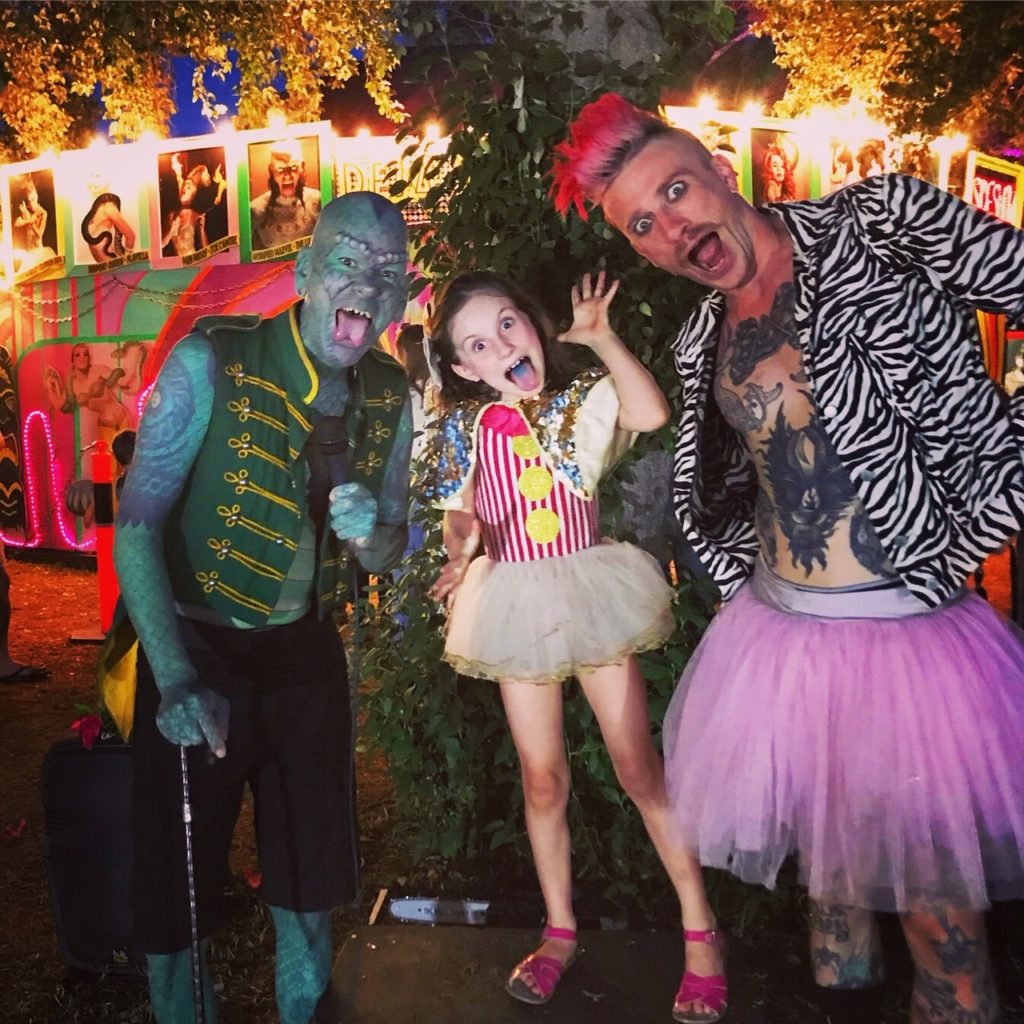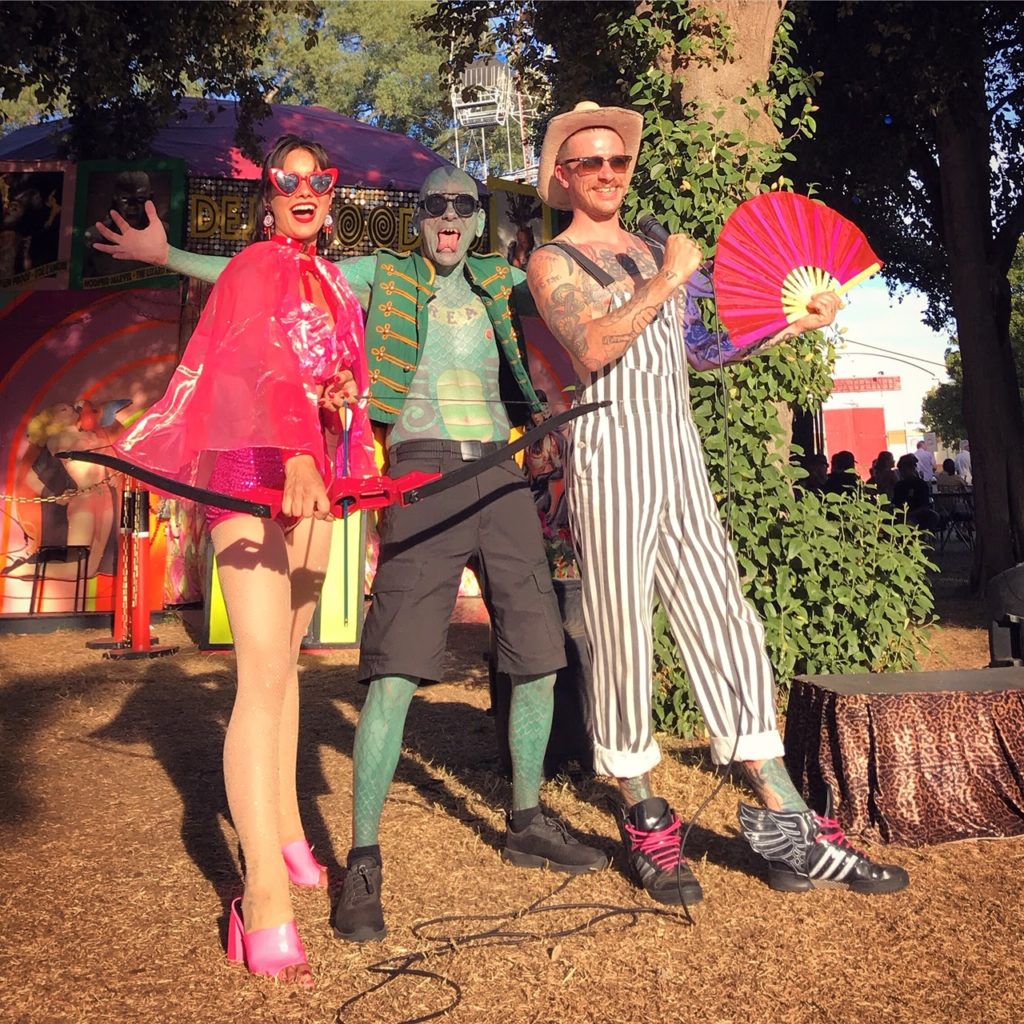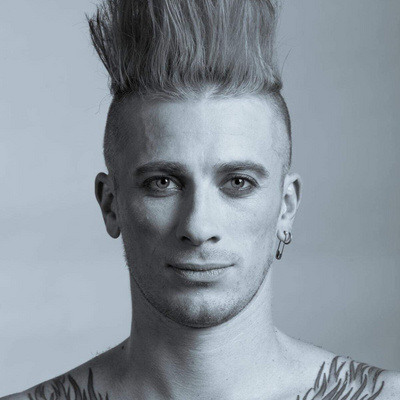Detachable Passion – An Open Letter to Performing Artists Everywhere
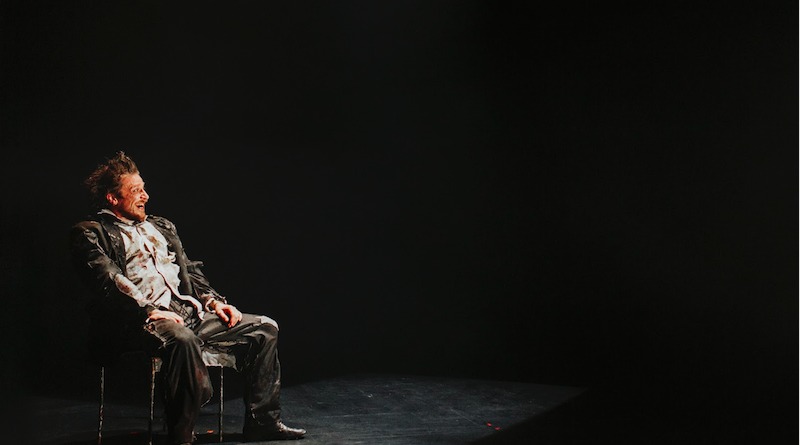
Separating art from commerce is a means to future proof our artistic practice.
As the Adelaide Fringe festival drew to a close in March, familiar clouds of yellowed grass and dust started to rise from the trampled fields of the Garden of Unearthly Delights. The coronavirus was making headlines and the mood was tense. One afternoon as I was spruiking to the audience outside the tent the dust caught in my throat mid-way through a spiel and I began to cough, having to pass the mic and go inside lest I cause alarm. As we packed down the tent we joked, only semi-ironically, that at least we’d had a good time over the last month, because clearly none of us were ever going to work again.
Four months later and it looks like many performing artists will indeed find it difficult to get on stage for the rest of the year. The ongoing uncertainty of the pandemic seems to spread out around us like a slowly growing puddle of ooze. No one really knows when we will be able to get back to work, and this has prompted despair from friends around the world, asking themselves – ‘what is a performer without an audience?’
Aside from the unprecedented scale of this health crisis there is an accompanying economic tremor running through a pillar of contemporary social relations – capitalism. The insistence of governments on ‘re-opening’ economies drives home the idea that our primary role within 21st Century capitalism is to consume – to buy and sell goods, and thus keep the wheels of productivity and growth turning. In this framework, audiences are also consumers, and their return to theatres and festivals will supposedly drive the renewal of our industry. But this insistence on the ‘snap back’ to an economic normal, ignores the two existential challenges of our times – one being Covid-19 and its effect on relationships of consumption, and the other being the urgent need to prevent runaway climate change. Most of us are aware that limiting global warming will require a radical change to the way we live. The writing is on the wall.
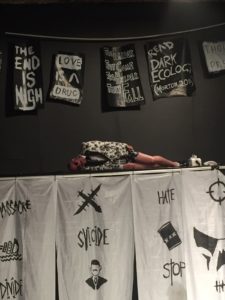
So where does our art form fit into this newly uncertain dynamic? Being in front of an audience is at the core of what we do. Artists need an audience in order to tell stories; ask questions; inspire wonder and create strong emotional responses with our art. Creativity and imagination have a place within every society, whether it is decorative motifs on fabric, magical cave paintings to help with hunting, explorations of difficult ideas or spectacular demonstrations of physical possibility. A world without art would be a miserable place indeed – it is clear to anyone with a heart that art is a vital part of the human experience.
However, there is a prevailing mindset within our industry that in order to be ‘successful’ a performance or artist has to be seen by as many people as possible; it has to receive praise and media attention; it has to tour nationally/internationally, and it should hopefully (as a result of these things) make money for those involved. When we advocate the economic importance of our industry we also fall into this reductive way of thinking. This is a commercial approach to making performance that has very little to do with creativity because it is driven by the values of business. It requires mass appeal, advertising, expansion and profit. Following this path back to the stage has been put out of reach by the current economic situation, and many artists, designers, technicians and directors invested in this way of thinking are experiencing an existential crisis now that their careers have been put on hold.
And yet still – we need to perform.
(As a side note, I think it is important to understand that these business values play an essential role in supporting capitalism, but that capitalism actually does very little to enhance the quality of artist’s lives and work. We are low on the food chain in an industry that is supposed to be about us! Take the Adelaide or Edinburgh Fringe Festivals, which contribute millions of dollars to their local economies, boosting the profits of hotels, cafes, bars, city councils, newspapers and so on. Yet it is taken as a given that most artists will lose/pay tens of thousands of dollars for the chance at being ‘successful’. This is no longer about creativity – it is a business model where artists are pitted against each other to create profit for everyone else.)
And yet still – we need to perform. So what I have been thinking about is the need for a revaluation ofwhy we do what we do, that focuses performing on the personal needs of the artist and the power of their ideas, rather than on the commercial and economic activity that surrounds (and only sometimes supports) them. Obviously we all need to make a living somehow. But if making money is your main motivator, then there are far easier ways to do it than by attempting to become a ‘successful’ circus performer. Therefore there must be deeper and more resonant underlying needs that are fulfilled by our practice. These are probably different for every individual. To the readers of this article, I invite you to leave a comment – what are they for you? What are the non-economic, non-lifestyle reasons that drive you? What nourishes, inspires and invigorates you about your practice?
I think that if we can explore these reasons together, and find co-operative, non-commercial ways to achieve them, we can also start to separate our art practices from the capitalist model. In turn, this increases the independence of our voices, and our ability to make meaningful cultural contributions.
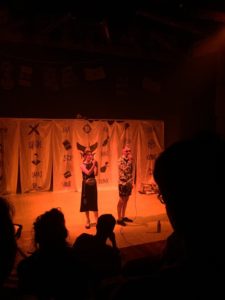
Focusing our artistic practices on our values and away from commerce will also help to ensure sustainable creativity. It is very likely that Covid-19 will drastically change relationships of consumption for the foreseeable future, and that there will be continuing economic effects. This is added to the fact that capitalism is an inherently unstable system, based on exploitation and environmentally unsustainable growth. Models of creative practice that rely on this system and focus on economic gain are always going to be vulnerable to downturns in spending and consumer confidence. Therefore we can future proof our artistic practice by creating new ways to perform that do not wholly rely on these models.
To do this I think we need to start by asking questions about what is at the heart of our work. What drives your creativity? These will start to reshape how we present our artistic practice.
For example – does a work feel new every time you perform it? Does it benefit from being performed one hundred times or just a few times? Does the outcome for your practice change if a large audience or an intimate one sees it? Do the audience have to pay to be there? What happens if they watch it for free – does that change how they experience it? Does it change how you perform if you are getting paid/making money from the performance? Why? If the performance isn’t rewarding for you in and of itself, is it really the work that you want to be making? What effect does the financial aspect of your practice have on your art? Does it help it reach new audiences, or does it hold you back? What does it mean to be a ‘professional’ artist? Does a professional have a different approach than a passionate amateur would? What does your work contribute to the world? What is its truth, and what are the audience learning from it? Does it have to be seen in a theatre, or would it work equally as well as an installation or a video project? What is the relationship of your work to the ‘stage’ – could it be performed in a backyard, or a warehouse, at a party or in a park for a different effect?
If we ask these questions with a flexible and fluid approach, we can create our own unique methods that prioritise the meaning that is at the heart of our work. There are no wrong answers; these are simply examples I am thinking about while attempting to detach my passion for performing from the capitalist model of our industry. I don’t have all the answers about how to make a living from what we do, but currently, I’m not sure if that is the most important question to be asking.
I look forward to hearing other people’s thoughts, questions and provocations.
With love and rage,
MITCH JONES
Related content: Autocannibal–Circus Gets Dark
Editor's Note: At StageLync, an international platform for the performing arts, we celebrate the diversity of our writers' backgrounds. We recognize and support their choice to use either American or British English in their articles, respecting their individual preferences and origins. This policy allows us to embrace a wide range of linguistic expressions, enriching our content and reflecting the global nature of our community.
🎧 Join us on the StageLync Podcast for inspiring stories from the world of performing arts! Tune in to hear from the creative minds who bring magic to life, both onstage and behind the scenes. 🎙️ 👉 Listen now!
